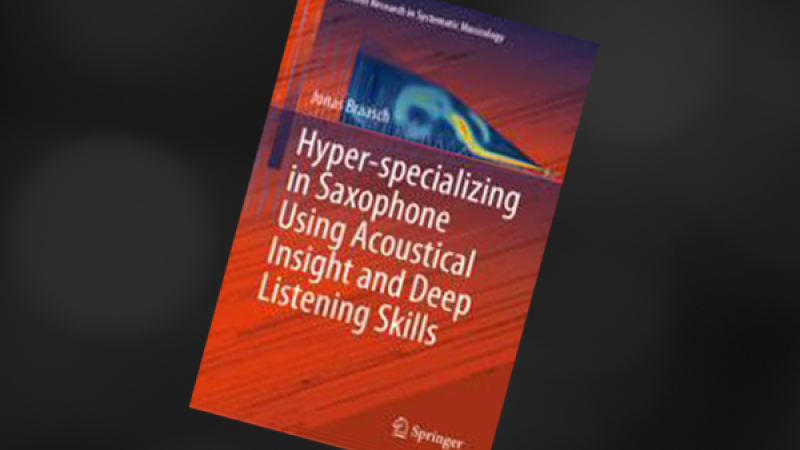New book by Professor Jonas Braasch introduces the musical concept of “hyper-specialization”
May 29, 2019

After eight years of work, Jonas Braasch, professor of architecture and arts at Rensselaer Polytechnic Institute, has figured out how to play a soprano saxophone as a brass instrument, a flute, a double-reed instrument, and a single-reed instrument.
In addition to designing mouthpiece adapters, determining innovative playing techniques, and finding answers to other technical questions that make it possible for a saxophone to recreate the sounds of other instruments, Braasch also developed a new philosophy that could fundamentally change how music for woodwind instruments is composed and performed.
In his new book, Hyper-specializing in Saxophone Using Acoustical Insight and Deep Listening Skills, recently published by Springer International Publishing, Braasch introduces readers to “hyper-specialization,” an approach that allows musicians to maximize their versatility and virtuosity by playing a variety of sounds with a single wind instrument.
“Hyper-specialization allows musicians to adapt to a variety of musical situations,” said Braasch, who also serves as the director of operations for the Cognitive and Immersive Systems Laboratory at Rensselaer. “They can incorporate a diverse range of sounds into their compositions while still maintaining the flexibility and convenience of one instrument.”
In his book, Braasch offers readers instructions on how to build mouthpiece adapters, guidelines on how to perform using the adapters, practice exercises, and sample songs. While his direction is based on his experience with a saxophone, an instrument he has played since 1985, he encourages musicians to experiment with other wind instruments.
“With hyper-specialization, musicians can build on the standard fingering system they have already mastered by expanding the range of sonic identities they can produce,” Braasch said. “The ultimate goal is that an instrument with a mouthpiece adapter could be used in place of the instrument a musician is trying to capture.”
Braasch’s book was largely inspired by his own experiences as a musician, one of which included a decade of working with the late Pauline Oliveros, a distinguished research professor of music at Rensselaer. Oliveros’ concept of Deep Listening, which encourages individuals to explore the difference between hearing and listening, helped Braasch in the development of hyper-specialization and serves as central theme in his book.
More information about Braasch’s work, including demonstrations and information on where to purchase his book, can be found here.